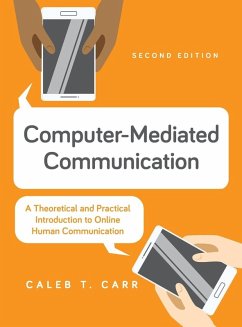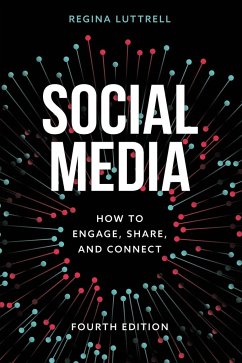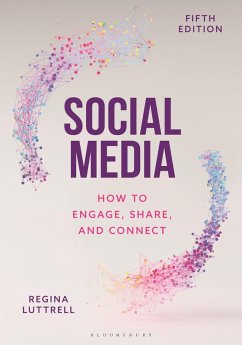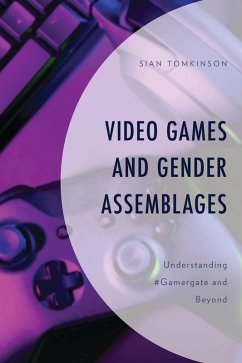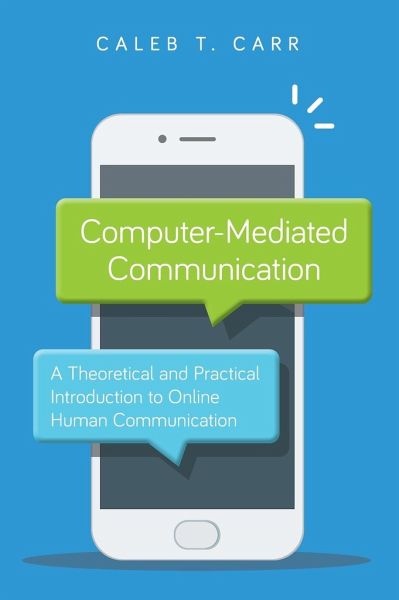
Computer-Mediated Communication
A Theoretical and Practical Introduction to Online Human Communication
Versandkostenfrei!
Versandfertig in über 4 Wochen
135,99 €
inkl. MwSt.

PAYBACK Punkte
68 °P sammeln!
Caleb T. Carr introduces students to fundamental concepts, theories, and applications of computer-mediated communication. Building on CFO, SIP, SIDE, and hyperpersonal CMC theories, this engaging text gives students a framework for human communication across all existing and future digital channels.





